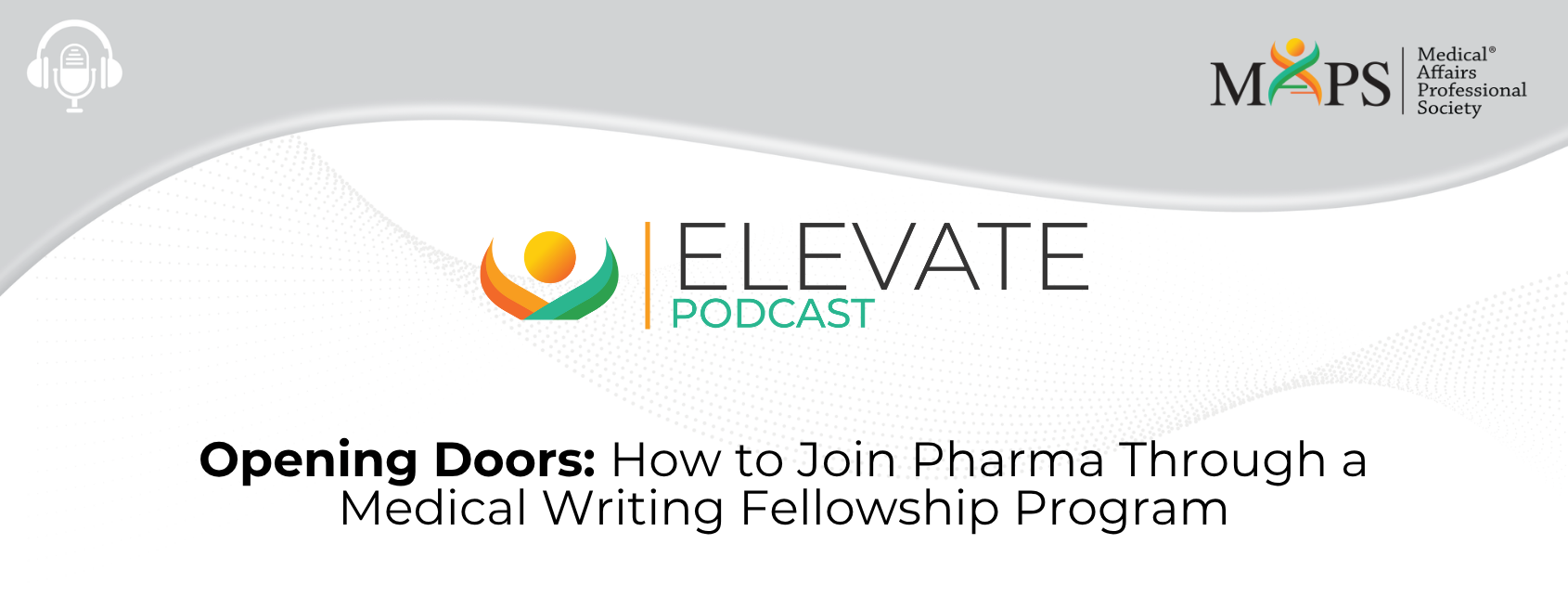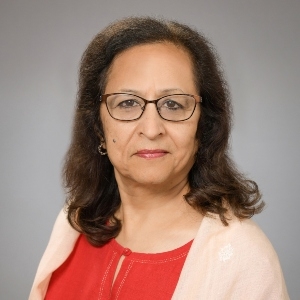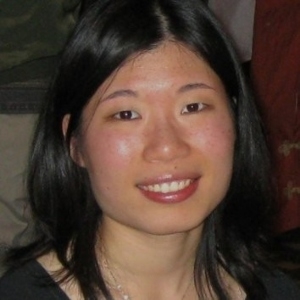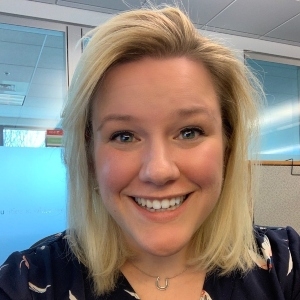Opening Doors: How to Join Pharma Through a Medical Writing Fellowship Program
Speaker: Renu Juneja
Speaker: Jennifer Lee
Speaker: Lauren Brown
In this episode of the Elevate podcast channel, Opening Doors series, MAPS speaks with Renu Juneja, who started a medical writing fellowship program at Janssen, and with two of her former fellowship participants, Jennifer Lee and Lauren Brown. We hope you enjoy this look at one way to find a first position in the pharmaceutical industry!
Following is an automated transcription provided by otter.ai. Please excuse inaccuracies.
Garth Sundem 00:00
Welcome to this episode of the Medical Affairs Professional Society podcast series: “Elevate”. I’m your host Garth Sundem, Communications Director at MAPS. And today we’re continuing our Open Doors podcast series, with Renu Juneja Head of Scientific Evidence and Communications Oncology, US Medical Affairs Head Janssen, Jennifer Lee, Associate Director of Scientific Publications in Nephrology at Astellas, and Lauren Brown, Associate Director, pH Expansion Team, Digital and Patient Engagement Strategy, US Medical Affairs, Pulmonary Hypertension, also at Janssen. So, Renu last time we chatted, we were talking about a fellowship program that you had started at Janssen in medical communications. And could you start by refreshing our memory of what that program is why it is needed, and how it started.
Renu Juneja 01:01
Sure, yeah. Thank you. Thank you for continuing the conversation, very important conversation actually. So this fellowship program actually started at Novo Nordisk it was my first company. So as I mentioned in the last podcast that, you know, somebody helped me come in, in, in the pharma industry as a medical writer, right. So as I grew in Korea, and I became head of the strategic scientific communications group, you know, I, it was almost like paying it forward. That and also a really good need business need in the industry, that we all you know, I, we all realized that we needed PhDs and from BS into scientific communication in pharma industry, but it’s that chicken and egg story, right? Everybody wants people with experience, but if nobody gives them experience, how do they get the experience, right kind of thing. So that’s what started the thought of starting with this fellowship program. And as I said, that I think it was, I was definitely at Novo Nordisk when we started this program. And the main objective of the program was to bring in recent PhDs, and then, you know, big time I also started included form D. candidates into this fellowship program, but we recently graduated candidates who come in that industry, and then you know, we give them one or two years of this experience, or, you know, getting them trained into scientific communications during this fellowship program, so that then they can go on to get, you know, permanent roles and other roles in scientific and medical communications.
Garth Sundem 02:58
Well, so Jennifer, you’re on the left of my screen. What is your background? So recent PhD at the time of the program, and how did you find this fellowship program?
Jennifer Lee 03:10
Yeah, so I received my PhD in biochemistry. And I was not totally committed to pursuing a career in academic research. So and I really did enjoy writing. So I decided to look into some different options. And I pretty sure I’ve found the Novo Nordisk strategic science strategic scientific communications fellowship on LinkedIn, decided to apply and luckily got an interview. I met other previous members of the team who actually came through that fellowship as well at Novo Nordisk they interviewed me and I learned all about what they do, because I actually didn’t have a really great handle on on what medical writers did in industry. I did have some classmates who were working on the agency side, and I knew roughly what they did, but I wasn’t totally sold on that career path either. So it was really quite fortuitous that I came through and interviewed at Novo Nordisk and got the position.
Garth Sundem 04:27
Well, maybe we’ll get into what medical writers do on the on the industry side in a sec. But Lauren, how did you fund the program? What was your back?
Lauren Brown 04:37
So my background is I have a PhD in cell and molecular biology. And then I did a postdoc basic research fellowship, and quite literally was burnt out from the lab. I didn’t want to do lab work anymore. And I just started looking into industry and the only options I was presented with as a PhD were either lab work in industry, or an MSL, which I don’t We had a few presentations when I was in graduate school and it was, okay, you’re going to talk to healthcare providers, and you’ll do a lot of travel. And that wasn’t something that I was open to because I, you know, I wanted to start a family. And I didn’t want to be on the road all the time. So I just fit. So something that was going to be scientific communication, translating very dense scientific material into easier to consume material and working with people, but not in a lab setting. So I found the fellowship and it was like, Hey, do you have you just recently had a guy, you know, received a PhD check. Have you? Do you have an experience making slide decks and doing scientific communication? Yes, that was most of my career to that point. And I was I thought it was a long shot, but I applied, and then I got to meet, Renu. And now you know, she’s now one of my long term mentors. But that’s kind of how I discovered it was it was just Kismet that I was able to find that on the j&j website. Yeah, that was it. It was just tenacity, of just keeping searching for something that would kind of fit me.
Garth Sundem 06:08
Well. And Lauren, you mentioned as we were starting this call that you’re under a hurricane warning. So if there’s a blip in your recording, we won’t hold it against you will hold it against the weather. So Renu, you have people who are our recent PhD, recipients or graduates, and they come into this fellowship program. We don’t these people already know how to medically communicate, what do they need to know? And what does the fellowship program teach them?
Renu Juneja 06:35
Yeah. So I think I have a very good question about very good question there. So I mean, that’s how what I thought when I started my career as medical writer in industry, right? And then you realize, okay, there are some differences, right? With the big thing is, yes, all these fellows came with publication writing experience, right? They knew how to write abstracts, posters, slides, or our oral presentations and things like that. The big difference was that in academia, we had a little protein little gene little finding, and we could extrapolate it to the ninth degree, right? I mean, just keep going. But in in the industry, you just say the results, what it is, and that’s it? No, so there is little bit of, I would say, Fine tuning of publications, fine tuning of, you know, I mean, learning those key points that in clinical practice, you can’t extrapolate things. You it is what it is, or it’s not right kind of thing. But the other part we are Jen was part of the fellowship, back in Novo Nordisk that that time my fellows were doing both regulatory writing and publication writing. So of course, that regulatory writing was totally new. I writing a protocol writing a clinical study report that we didn’t do in academia, you know, very different writing for that. So yeah, there was some learning or regulatory writing side, and I’m sure Lauren will say the same thing, that there was some kind of writing that was that was not happening in academia, even in her fellowship program, you know, that she did. Yeah. So some, some final differences.
Garth Sundem 08:18
Final differences. Well, so Jennifer, did this program open doors and how did they lead to your current position? Or, you know, the the position after a fellowship? I don’t know if you’re still in the same one. But what what what did you gain from this fellowship? Where did it lead you?
Jennifer Lee 08:36
Oh, I gained so much relevant experience that I’ve taken throughout my, my career and positions after Novo Nordisk, so I stayed at Novo Nordisk for about two and a half years, where as Renu mentioned, I worked on both regulatory and publications writing. I really enjoyed the publication’s work and just working in Medical Affairs in general, decided to actually take a position on the agency side, where I primarily would be working in publications work, but also getting some broader exposure to different types of Medical Affairs work and actually even commercial work. So So I did that for several years, but I always, always had a hand in working in publications with different different companies. And then, pretty recently, I came back to the to the sponsor side, and now I’m working in publications exclusively.
Garth Sundem 09:33
That sounds like it’s been pretty fluid. Lauren, what is your experience been?
Lauren Brown 09:38
Um, so the Medical Affairs fellowship taught me more about Medical Affairs because like I said, my only exposure to industry and in the Medical Affairs world was learning about MSLs. And I didn’t know any of the behind the scenes things like what goes into making a deck what makes it an effective communication, what happens with publications, just all the moving parts of Medical Affairs so Oh, the opportunity that I received with the fellowship just opened my eyes and taught me all the different kind of multi faceted portions of Medical Affairs. So I stayed in my fellowship for a year and a half. And then I was recruited by a group within Janssen. My goal was to stay within Janssen because it’s a great company to work for. So then I was recruited to work in pulmonary hypertension. And it worked out well because I’m still in Medical Affairs. So I can take this skill set that I learned from the oncology fellowship and apply it to my current role now as Associate Director of Medical Affairs.
Garth Sundem 10:37
Okay, I’m sorry, Lauren, are you and I should look at your title again. Are you? Are you in communications or publications? Or what? What facet of Janssen hypertension Are you in?
Lauren Brown 10:48
So I’m in the unbranded portion of Medical Affairs. So we have two major brands, and then I work with younger and that stuff, so just disease awareness. So it’s in medical communications and scientific communications.
Garth Sundem 11:01
Oh, that’s interesting. So, Renu, if people who come out of PhD programs, if they’re looking for opportunities, this fellowship sounds like a fairly fairly linear path into industry. But there aren’t that many of these fellowship programs, how do people get into Medical Affairs or industry in general, outside of fellowship programs? Do they just sweat started applying for communications positions? Or how does it even work? What would you say
Renu Juneja 11:34
That that’s a challenge, right? So every time I talk to, you know, different my colleagues in different companies, you know, I begged them, I request them, because everybody is, you know, struggling with getting good scientific communications people good medical communication, or good writers, so to say, right, so I, every time I get a chance to speak at a congress or anywhere, my first couple of sentences are, please start is scientific communication, your fellowship program, it’s a win win, it’s paying it forward, you know, we all should be doing it. And I tell you, in a couple of cases, it has actually worked, I have heard that other people, you know, from my team, previous teams, or I have had conversations with or others, that they are starting these programs. So they are, you know, looking into these programs, but your as you said, there, these are very, you know, far and few were, I mean, aside from these have many fellowships going on. So they have a much easier path to get into industry. But for PhD, it’s not right. So my anytime anybody reaches out to me on LinkedIn, for you know, getting any kind of guidance, and all my request to all of them is always show that you are writing, you know, your first author’s on publications, show your interest in scientific communications, and medical communications, and then prob try more on the agency side, you know, if positions are opening up, because industry is little bit more stuck on that they have to have experience, but agency is more open to having fresh, you know, people come in and gain experience. And so I say, go to an agency, and if agencies little hesitant or you can get in, you know, volunteer, say can I write an abstract for you? Can I do a presentation for you? Can I do a poster for you, you know, kind of just volunteer your expertise or your experience there, and hopefully, you know, you will do a fantastic job and you will get in right kind of thing. But but it is it is a struggle, not many fellowship positions or roles are open for PhD, unfortunately.
Lauren Brown 13:49
And if I can add to it as well. Because all those are great points. I think networking has a lot to do with it as well. I didn’t personally know anyone from Janssen to help facilitate my you know, me getting the fellowship, I thought that was just pure luck. And, and luckily, my CV was, you know, appropriate for the role. But the current fellow Emmanuella, Renu, she reached out to me about a year and a half ago. Yeah. And so we’re news current fellows, someone who reached out to me and said, You’re the fellow, how did you do that? And I said, Okay, well, I might be leaving soon. So why don’t you take my spot jokingly and, and then and she sent me her CV and I was like, yeah, yeah, you should, you’re very qualified. And we just we just work together on trying to formulate a really great application and just kind of help her with this process. And she did it all on her own. But if she hadn’t reached out to me initially and said, How did you do that? She would have never had that initial contact or just the information about the program. So it’s, it’s it is a double edged sword because it’s like maybe you don’t want to network or maybe you know you’re a little shy, but it is beneficial to make that initial contact. Just to say, Hey, I’m very interested in people are happy to talk about themselves. So just informational interviews are super helpful. So that’s just another kind of tactic you can use, just get into industry.
Garth Sundem 15:16
And I’ll put in a plug for MAPS at this point, I think we’re a great place to come to meet people and now in a very collaborative and productive and, you know, not necessarily pressure filled way. So MAPS events are also a great place to meet folks in industry. So Jennifer, if you are going to give advice to PhD, a recent PhD who wants to get into industry, probably on the communication side, what what would you say to that person?
Jennifer Lee 15:44
I would say, definitely network, first, within your graduate school network, actually, my my graduate school had a pretty strong alternative career pathway program where they would give regular seminars about, you know, non academic careers, has so many folks actually, we’re not pursuing those those careers. So definitely attend those types of sessions if they offer them and if not, you know, speak to speak to folks, former students who are pursuing communication careers and, and really, it’s, it’s, it’s best to do this, if possible, before graduating. So you can try to set yourself up for success by by doing things in graduate school, like like more writing, more presenting, and just, you know, more of the types of activities that we do day to day, you know, in our Medical Affairs and Communications goals. And yeah, that’s, that’s really my best advice,
Garth Sundem 16:56
And maybe working with your university or academic, your PR representatives to to show that you’re doing communicating from the science side.
Lauren Brown 17:05
Absolutely. That’s the forum that there was a forum I attended in graduate school called Beyond the bench. I don’t know if anyone else has heard of that program. It was helpful in the sense that there was a level of networking, but it was also just more so of here are your options and you may not have ever heard of any of them. And I feel like with industry, there’s a lid for every pot. So if there’s something that you’re really good at, there’s got to be somewhere for you to fit within industry, you just kind of have to hustle network and or start on the on the vendor side or the partner side that might be or sorry, agency is probably the correct term, but the agency side and then work your way into the bigger industry. But yeah, well.
Garth Sundem 17:48
I cannot believe the volume of good advice we have just given to recent PhD graduates in our in our 15 to 16 minute phone conversation here and Lauren, is the phrase a lid for every pot. Is that actually a saying or did you just make that up? I’ve never heard that before.
Lauren Brown 18:10
Oh, my mom says it might not be I don’t, Renu. Have you ever heard that or no. Am I, okay, so that is something from Mrs. Brown.
Garth Sundem 18:21
Well, thank you all for joining us today. Renu, Lauren and Jennifer. This has been a spectacular conversation and I can’t wait to publish this to MedicalAffairs.org. Go there for many more episodes about opening doors into industry careers and many other resources. I hope you’ve all enjoyed this episode of the Medical Affairs Professional Society podcast series: “Elevate”.






